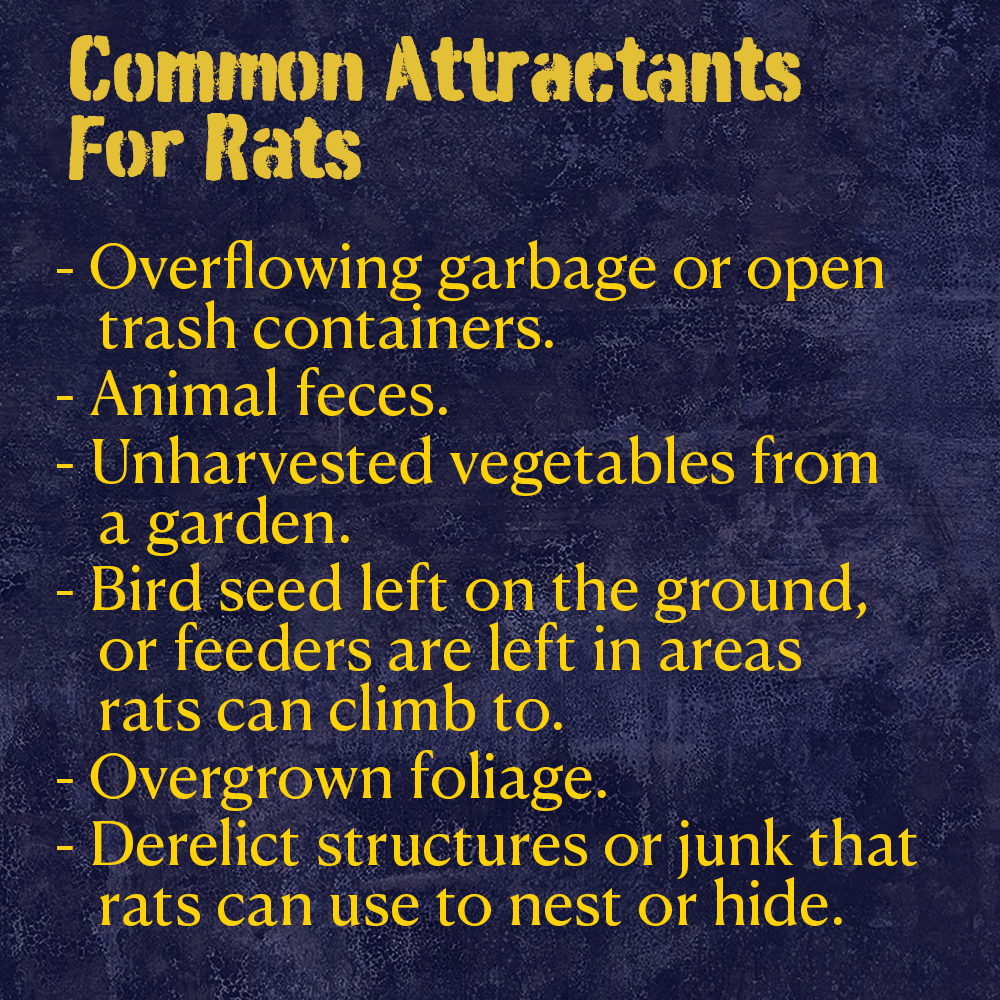The Complicated Background of Chicago’s Rat Problem
In 2023, Orkin proclaimed Chicago was the rattiest city in the United States for the ninth consecutive year, ahead of Los Angeles and New York. However, this claim is more complex than the pest control company claims.
According to city data gained from the Department of Streets and Sanitation (DSS), 311 calls, which deal with non-emergency requests in the city, for rat infestations increased sharply during the pandemic. However, according to a spokesperson from DSS who asked to remain anonymous, this uptick was caused not by an increase in the rat population but because their food source moved.
“So, when COVID happened, all of the businesses in the central business areas closed,” the spokesperson said. “More people were at home and were eating at home, and there was more garbage. So, it’s not necessarily that the rodent population has increased. They went where the food source was.”

Data containing the number of rat complaints throughout the years obtained by the FOIA requests.
The spokesperson said rats would also eat animal feces, particularly from dogs. Matt O’Shea, alderman of the 19th ward, states that dog excrement is one of the leading factors behind the rats in his ward.
“Rodent problems in our community are almost always tied to failure to pick up animal waste. In nearly every incident of a major rat problem I have seen — it can be traced to a home or homes on the block with a serious dog waste issue,” O’Shea said in an email. “What’s more challenging is that when the city comes out and baits for rats, the poison will kill the rats — but unless the dog waste is addressed, more rats will keep coming, leaving residents with the impression the poison has not been effective.”
O’Shea also mentioned how construction on several streets in the 19th Ward could add to the rat problem. According to an article written in Block Club Chicago about the city’s ratty residents, construction can cause rats to flee from their nests and move into other spaces. Moreover, contractors are not required to have their work zones checked for rats or submit proof that extermination has been carried out. This is not true of demolition sites, however.

Common attractants for rats. Graphic by Kiernan Sullivan.
Looking at the data, the sheer number of 311 calls can appear jarring. However, as stated in the Block Club article, 311 calls speak less about how many rats are present and more about the demographics requesting assistance and where the requests are concentrated in the city.

Overflowing trash cans in an alley in the 11th ward. Apartments, residential homes, and restaurants use the alley in question. Overflowing bins can serve as a potent attractant for various pests, including rats. Photo by Matthew Warakomski.
According to the DSS spokesperson, tracking the number of rats in the city is impossible as they breed too quickly and are too widespread. The spokesperson said, however, that the most significant defense against rats is education.
“You can call 311. We follow up on all our 311 requests,” the spokesperson said. “We like when the residents are home so we can go and meet them and then try to educate them: ‘Hey, you know, you’re gonna want to get rid of this, you’re gonna want to cut down overgrown weeds, which is a place where rats can hide.’ If you’ve got holes in your garbage cart or your garbage cart is broken, you can call 311 and order a new one.”

A rat burrow on the edge of a residential property in the 19th ward. According to M&M Pest Control, rats burrow through most objects and soil for shelter or to find food. According to another pest control site called Malum Southern Pest and Bird Control, they chew on other items like wires to keep their teeth from overgrowing. Photo by Matthew Warakomski.
Staffing shortages at DSS’ Bureau of Rodent Control have led to delays in response time. However, according to information from DSS, the department requests additional city funds for 2024 to hire three additional rat crews and reallocate labor for two more rodent control teams. This makes for a total of five rodent crews.
On the other hand, DSS alone does not have the power to address all rat complaints in Chicago. As the spokesperson stated, DSS only handles private residences and public land. Concerning commercial buildings, apartments and restaurants, the pest control job falls onto different city departments.
“It’s the landlord’s responsibility to ensure proper pest control,” the spokesperson said. “If you have a problem, you can call 311, and the building department will go out and do an inspection. The health department is responsible for restaurants.”
According to Block Club’s article, failure to comply with sanitation requirements for landlords and businesses only worsens the rat issue, and they can also face legal repercussions such as fines. For example, the Illinois Answers Project, an investigative program identifying common issues in the Chicagoland area and their solutions, investigated a real estate manager who had racked up $15 million in unpaid, rat-related tickets from properties on Chicago’s South and West sides.

The corner of La Salle and Van Buren, where people commonly dump unwanted food for pigeons. Littering and leaving food in the open for animals can have the unintended consequence of attracting less desirable urban critters. Photo by Matthew Warakomski.
Chicago’s rat problem is more complicated than companies such as Orkin would lead people to believe. In fact, according to information gathered from DSS, Block Club Chicago, and data obtained via FOIA requests, the number of complaints is decreasing toward pre-pandemic levels. DSS reported the number of complaints as of Oct. 12 of this year has dropped to 38,742 compared to 40,173 complaints from the same time in 2022.
“I want to explain that when Orkin announced their rattiest city, this is not where most rats are,” the DSS spokesperson said. “This is where Orkin, a private company, has the most customers. So, this is where the market is.”
The rat situation in Chicago is a multifaceted problem that will not disappear overnight. Jarring headlines and advertising only sometimes tell the whole story, and there is rarely a single cause or solution in public affairs matters. More administrative resources, resident education and action are required to make lasting changes.
Header by Mei Harter




NO COMMENT